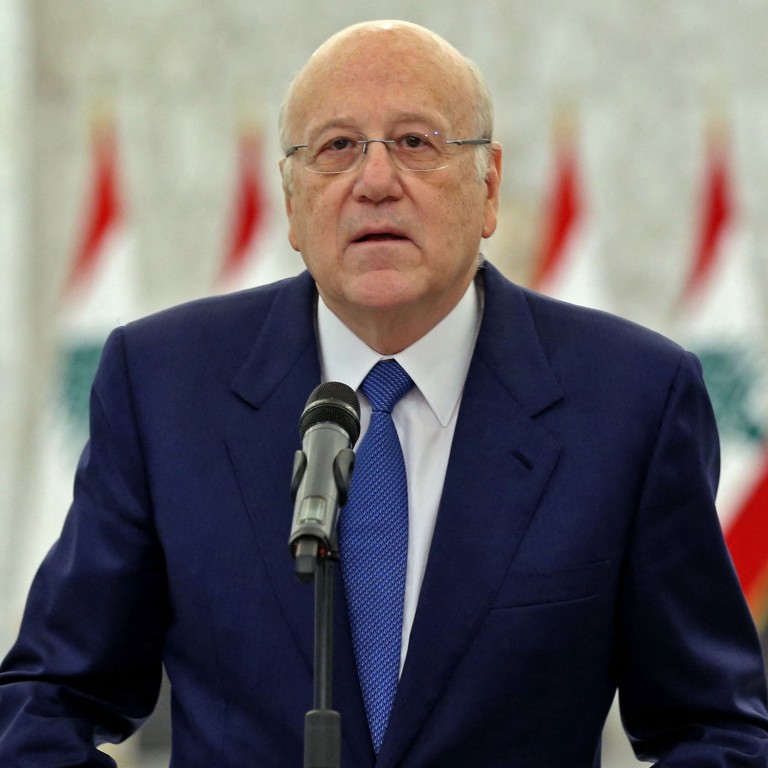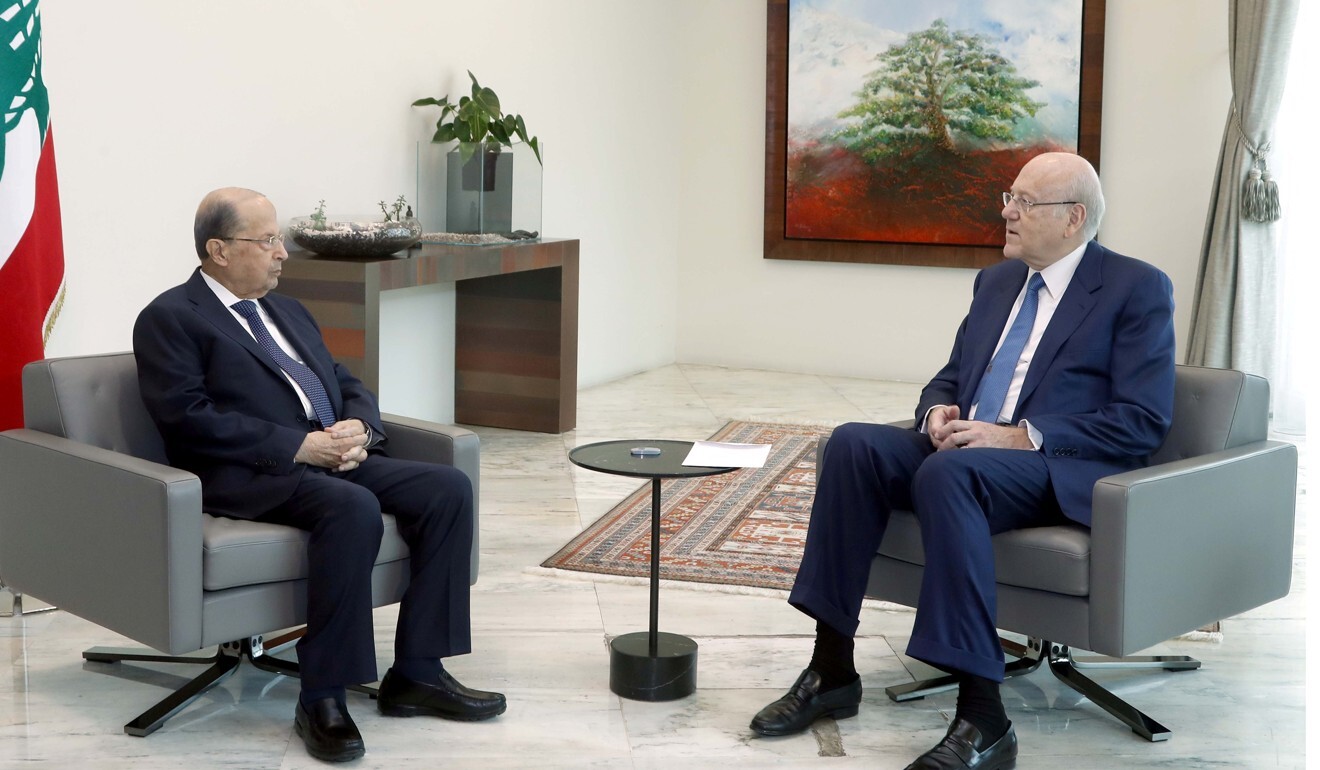
Lebanon gets new government after 13 months, but little optimism among wary citizens
- New PM Najib Mikati appointed a 24-member cabinet that includes only one woman, and TV presenter George Kordahi as information minister
- But analysts and ordinary Lebanese say there is little hope of a breakthrough to address the country’s financial crisis
Lebanon has ended a 13-month wait for a new government with the unveiling of a line-up that faces the daunting task of rescuing the country from economic meltdown.
A new cabinet was a condition for much-needed international assistance but its ability to deliver the required reforms remains to be seen.
“We will make use of every second to call international bodies and ensure the basic everyday life needs,” he said, adding his cabinet would turn to Arab countries for help.
Lebanese received the news with scepticism bordering on indifference while the EU and the UN stressed it was just a step on a long path to addressing the country’s woes.
Mikati was designated as prime minister in July after his two predecessors failed to clinch an agreement on a new line-up.
Lebanon explosion judge summons caretaker Prime Minister Hassan Diab
His cabinet of newcomers include technocrats but each minister was endorsed by one or several of the factions that have dominated Lebanese politics since the 1975-1990 civil war.
The country’s hereditary political barons have so far appeared impervious to international pressure, which intensified after a deadly explosion at Beirut port in August last year.
One of the world’s largest non-nuclear explosions, the blast killed more than 200 people and was widely blamed on government incompetence and corruption.

Lebanese political analyst Sami Nader argued there was little hope of a breakthrough if the dynamics that prevailed during the cabinet line-up negotiations remained in place.
“The continuation of quota politics and bickering over every reform and decision would mean no departure from what the caretaker government was able to do,” he said. “It was the same cooks who formed this government.”
Lebanon has been run by a caretaker government since August last year when premier Hassan Diab and his cabinet resigned after the port blast that devastated swathes of the capital.
Anger in Lebanon after fuel tank explosion kills 28 and injures 80
The 24-minister cabinet includes only one woman – former diplomat Najla Riachi, who takes over the administrative development portfolio.
Firass Abiad, the head of Lebanon’s largest public hospital who rose to public prominence in the battle against the Covid-19 pandemic, was appointed as health minister.
But perhaps the best-known face is that of star TV presenter George Kordahi, who takes up the position of information minister.
Known across the region for hosting the Arabic version of Who Wants to Be a Millionaire, his appointment in a government headed by Lebanon’s richest man drew sarcasm on social media.

New finance minister Youssef Khalil, who has worked at the central bank for almost three decades, will be expected to lead efforts to rescue Lebanon from economic meltdown. But critics are warning he is unlikely to take a tough line against his former employer, which is widely blamed for the country’s bankruptcy.
The state can no longer provide mains electricity to its citizens for more than a few hours a day, nor can it afford to buy the fuel needed to power generators.
The local currency has lost more than 90 per cent of its value, entire segments of Lebanon’s 6 million inhabitants are sinking into poverty and those who can are emigrating by the thousands.
Very few of the international community’s demands for a broad programme of reforms have yet been met, hampering the disbursement of foreign assistance.
Lebanon government resigns amid fury over Beirut blast
Further stalling the bankrupt state’s recapitalisation has been the government’s failure to engage the International Monetary Fund and discuss a fully-fledged rescue plan.
“The new government will have to prepare legislative elections and ensure they are held on time,” said analyst Nader.
Parliamentary polls are due next year, with many hoping the vote will bring fresh blood but others doubtful it could yield game-changing results without a revamp of the electoral system.
“There is practically only one door on which to knock for this government and that is the International Monetary Fund’s, because there is no other way out of the crisis,” Nader said.
Western powers had lost patience with Lebanon in recent months and stopped short of welcoming the appointment this summer of Najib Mikati, seen by many as a symbol of a self-serving, sectarian and corrupt political class.
Both the United States and European Union urged the new government to undertake reforms quickly, with Washington calling on Mikati to address “the dire needs and legitimate aspirations of the Lebanese people”.
UN chief Antonio Guterres said a new government was a “very important step” but “not enough, there are many other things to be solved”.
On the streets of Beirut, the announcement of a new cabinet seemed to do little to lift the spirits of a population broken by one of the steepest economic declines the world has seen in decades.
“I am not optimistic, neither about this government nor about the whole country,” said Rony, a 18-year-old student. “I am willing to leave the country if I get a chance.”

.png?itok=arIb17P0)